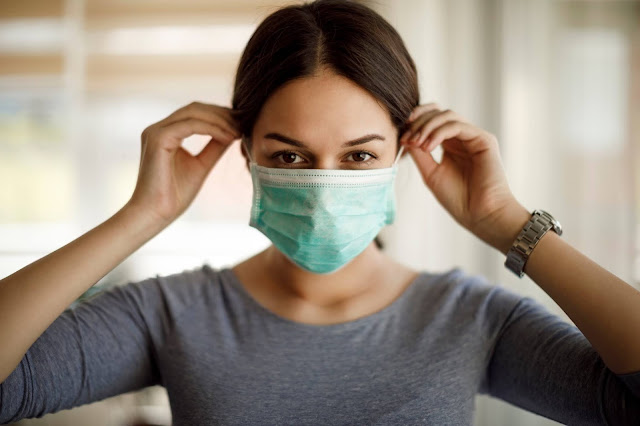AHA's and BHA's. What they are and how you should choose which one is right for you !
AHAs are water-soluble acids made from sugary fruits, they help peel away the surface of your skin so that new, more evenly pigmented skin cells may generate and take their place. After using them you will likely notice that your skin is smoother to the touch.
On the other hand, BHAs are oil-soluble acids. Unlike AHAs, BHAs can get deeper into the pores to remove dead skin cells and excess sebum and exfoliate the skin from within.Which Acid should you choose?
AHAs are primarily used for:
● mild hyperpigmentation like age spots, melasma, and scars
● enlarged pores
● fine lines and surface wrinkles
● uneven skin tone
Although AHAs are often marketed as safe for all skin types, you’ll want to take care if you have extremely dry and sensitive skin. You may need to gradually work up to daily use to avoid irritating your skin.
BHAs, on the other hand, are primarily used for acne and sun damage. These products go deep into your hair follicles to dry out excess oils and dead skin cells to unclog your pores. Because of these effects, BHAs are most suitable for combination to oily skin. Lower concentrations may be used to help calm sensitive skin. You may also have more success with BHAs if you want to reduce rosacea-related redness.
The purpose of both AHAs and BHAs is to exfoliate the skin.Still, neither type of hydroxy acid is “better” than the other. Both are highly effective methods of deep exfoliation. The differences lie in their uses. Lets look at some of their uses in detail.
Benefits of AHAs in Skin Care
1.AHAs Treat and Prevent Acne
Dead skin cells play a huge role in the formation of acne. These dead skin cells accumulate and buildup over time, eventually mixing with oil and sebum and causes a breakout. Using a chemical exfoliator busts those dead skin cells and loosens the bond they have with the hardened sebum.
2.AHAs Reduce
Both at-home and salon treatments using AHAs can help reduce the appearance of hyper pigmentation in skin. Hyper pigmentation usually occurs when there is an excess production of melanin (a pigment that causes darkness), inflammation, sun damage or other skin injuries. The excess melanin gives the appearance of discolouration, unevenness, and hyper pigmentation. AHAs can be an effective treatment to reduce hyper pigmentation because they remove the cells in the epidermis that have darkened with melanin.
3.AHAs Improve Damage Caused by Sun
Similar to the benefits of reducing hyper pigmentation, AHAs improve discolouration associated with sun damage. AHAs have long been studied for their positive effects on photo aged skin.
4.AHAs Prevent Dehydration
Here is the key reason why AHAs are recommended for dehydrated skin. AHAs increase the rate of skin cell renewal, which encourages lipids to move faster as well. This allows the epidermis to hold onto moisture for longer and reduces the risk of Transepidermal Water Loss.
5.AHAs Result in Smoother Skin
The chemical exfoliation process of AHAs improves rough textures and reveals smoother, softer skin. In people with dry, flaky skin, these results can be noticed quickly.
BHAs travel deeper in the skin and are not as gentle as AHAs. However, oily and acne-prone skin types may need the tough love that BHAs provide.
While AHAs loosen the bonds between dead skin cells and sebum, BHAs penetrate into the pores and extract impurities. BHAs are great exfoliators to remove dead skin cells and the buildup of dirt on skin, but it’s oil soluble properties yield other great benefits.
1.BHAs for Oily Skin
Scientists commonly refer to BHAs as lipophilic, which means oil loving. BHAs love oils, making them incredible agents at balancing the oil levels in your skin. They draw out the excess oils in your skin, so when you wash away the BHAs with water, they take the oils with them.
For oily skin types, BHAs like salicylic acid are a game changer at putting a stop to excessive oil production and regulating the moisture balance in skin. Plus, BHAs actually penetrate pores, unclog them, and make them appear smaller.
2.BHAs Fight Acne
Similar to AHAs, BHAs help treat and prevent acne. However, BHAs may be a more effective treatment because they penetrate deeper. BHAs are also anti-inflammatory and antiseptic, which helps them to relieve acne.
The ability of BHAs to dissolve oil in pores makes them comedolytic, a scientific term that means BHAs can dissolve comedones. BHAs suppress the bacteria that causes acne and travels deep enough to unclog pores, making them an effective treatment to fight breakouts.
3.BHAs Reduce Hyperpigmentation
BHAs encourage basal cell layer stimulation and remove surface cells, which can help reduce the appearance of fine lines, wrinkles, and hyper pigmentation. With BHAs, skin cells that are affected by hyper pigmentation or excess melanin are removed and replaced with new skin cells that aren’t discoloured.
4.BHAs Encourage Anti-Aging
Many of the benefits of BHAs are related to anti-aging. Since BHAs improve rough textures, they can also improve the appearance of fine lines and wrinkles. They’re also effective at reducing hyper pigmentation due to photo aging as well as dark sunspots.
The chemical exfoliation properties of BHAs stimulate cell renewal by sloughing away dead skin cells and making room for new ones.
Aura Skin & Hair Clinic is top rated cosmetologist and medi-skin care clinic in vizag.
Follow us on Facebook & Instagram to get more tips on skin & hair care.
Call Us Now +91 91777 99077









